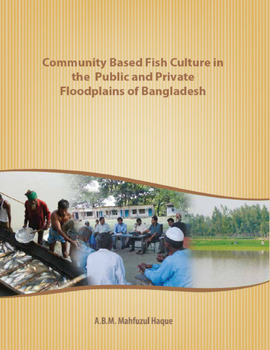Community based fish culture in the public and private floodplains of Bangladesh
Abstract
Seasonal floodplains under private and public ownership in the Indo-Ganges river basin provide food and income for millions of people in Bangladesh. This research aimed to understand the complex institutional relations that govern ownership, access, and control of the floodplains under Community Based Fish Culture (CBFC) to increase fish production and overall livelihoods of the poor. Stakeholders representing various institutions and organizations, like the Department of Fisheries, the Land Department, and Floodplain Management Committees, as well as the lease holders of public water bodies in the floodplains, private landowners, seasonal and professional fishers were interviewed. The willingness of people from different social classes to work together, the adoption of new technology, the benefits of cooperation, and the embeddedness of local institutions are shown to be important inputs for policy making. The research also shows that existing co-management arrangements characterized by unequal power distribution among the different actors often resulting in the marginalization of the professional fishers and the landless poor fishers

